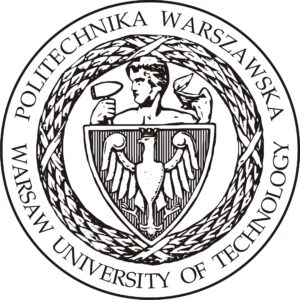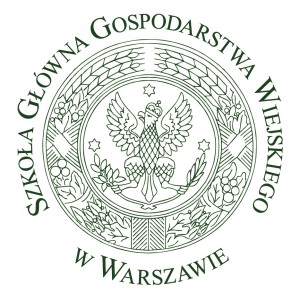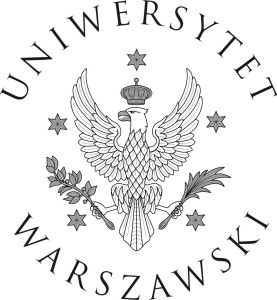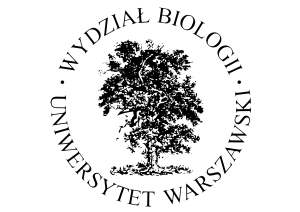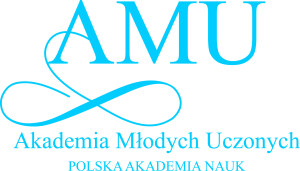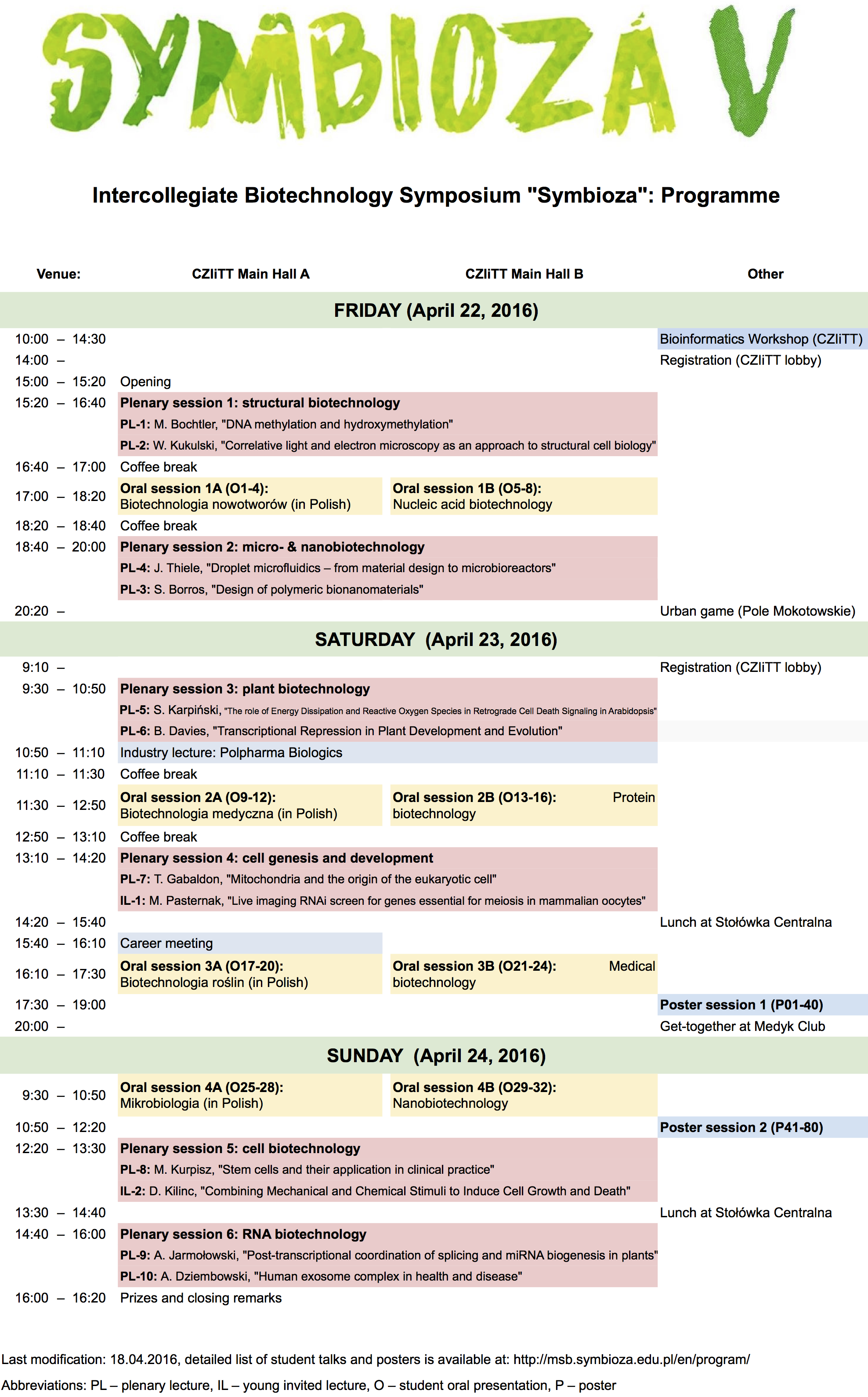Edition 2016

The 5th Intercollegiate Biotechnology Symposium “Symbioza” was held at the Center for Innovation Management and Technology Transfer of the Warsaw University of Technology on 22–24 April 2016.
MSB Symbioza 2016 was the first edition:
- 1. held primarily in English;
- 2. with plenary lectures given by top-tier professors from all around Europe;
- 3. establishing the young invited lectures category to promote young researchers of already remarkable scientific achievements on the threshold of their fully-independent careers;
- 4. which included a applied science side event such as a data analysis workshop.
The conference aimed at presenting the diversity of research conducted within biotechnological sciences, as well as overcoming the danger of omnipresent specialization is science by forming new bonds between scientists. At the event, 200+ participants gave ca. 30 student talks, and presented ca. 80 posters. MSB Symbioza 2016 was addressed mostly to PhD students and the best master students, but included the paricipation of many undergraduate students as non-presenting participants.
Plenary lectures
This section involved talks by acknowledged Professors or Group Leaders from significant European Universities and Research Centres as well as acclaimed top-tier Polish scientists.
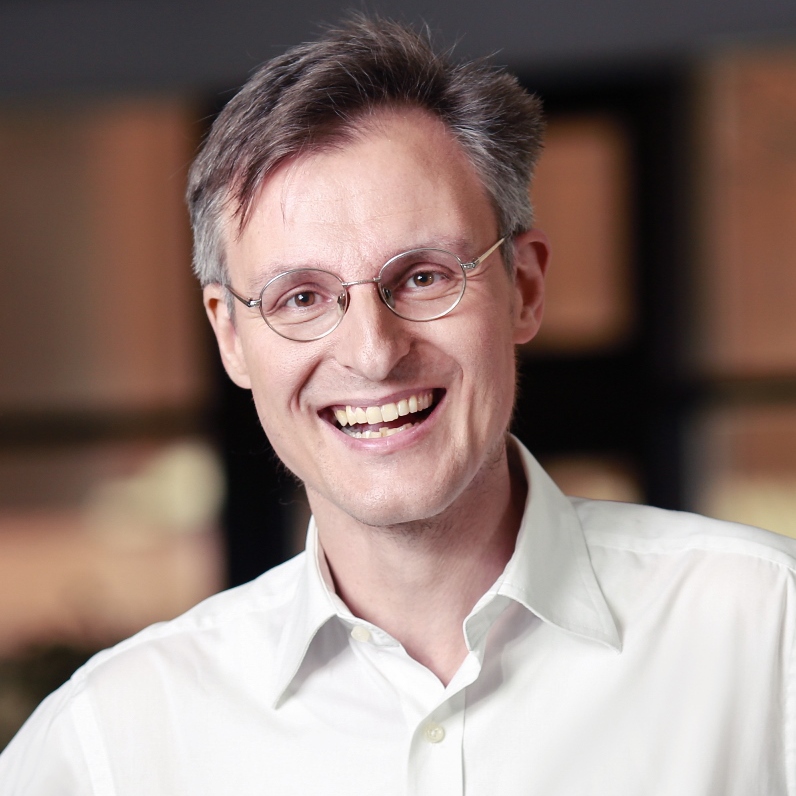 |
Matthias BochtlerInternational Institute of of Molecular and Cell Biology, Scientific interests: sequence- and modification-specific protein-nucleic acid interactions, structural biology Lecture title: DNA methylation and hydroxymethylation |
» show more info
Matthias Bochtler graduated from the Universities of Munich and Cambridge, and was educated by a Nobel Prize winner, prof. Robert Huber. He moved to Poland initially as a shared position with Max Planck Institute and the International Institute of Molecular and Cell Biology in Warsaw (IIMCB). Currently, he is the head of the Structural Biology Laboratory founded In the International IIMCB in 2001. His research is focused on structural and biochemical properties of endonucleases and methyltransferases, as proteins interacting with DNA, as well as the crosslink between DNA modification and damage. He is a laureate of the Pieńkowski Award (2005), EMBO/HHMI Young Researcher Award (2004) and Crystal Award in Germany (2000, 1998). His publication record includes two Nature papers, and regular works in Nucleic Acid Research and PNAS, cited all together more than 3500 times.
Selected recent publications:
1. On the role of steric clashes in methylation control of restriction endonuclease activity, Nucleic Acids Res. 2016, 44, 485.
2. Structural basis of the methylation specificity of R.DpnI, Nucleic Acids Res. 2014, 42, 8745.
» hide bio
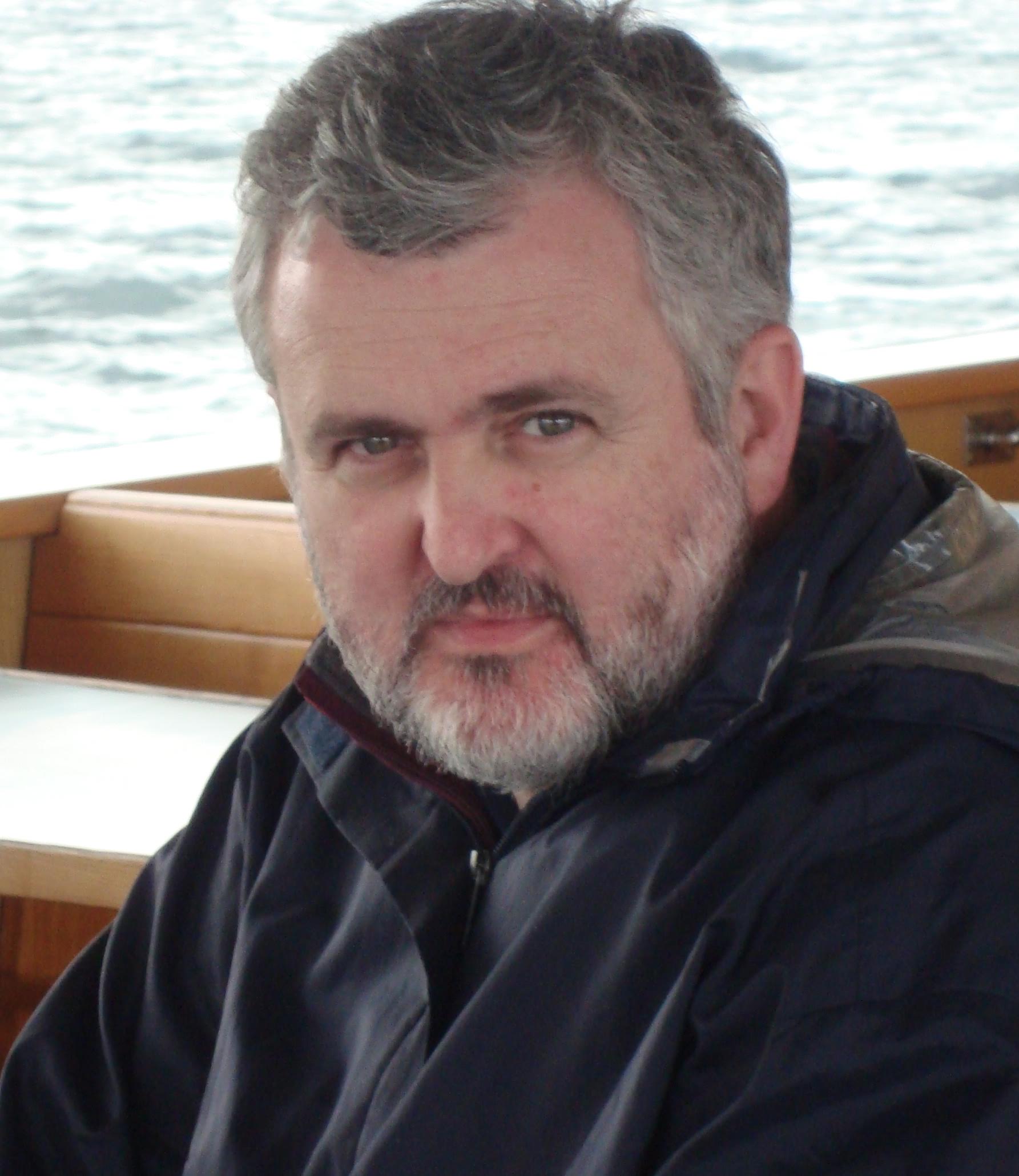 |
Salvador Borrós i GómezInstitut Quimic de Sarrià, Universitat Ramon Llull, Scientific interests: material and biomaterial engineering Lecture title: Design of polymeric bionanomaterials |
» show more info
Prof. Salvador Borrós i Gómez is head of the material engineering group GEMAT affiliated to the independent Instituto Químico de Sarrià (IQS) and the head of Chemical Engineering and Materials Science Department at University Ramon LLull in Barcelona. After graduating in Chemical Engineering and Management of Industrial Companies, he was nomitated full proffesor in bioengineering in 2004. He is also a founder member of the Centre of Technology in Cultural Heritage Conservation. His research interests evolved from pure material engineering to the engeneering of biological systems, including scaffolds for bone and cartilage regeneration, smart surfaces supporting chemical and mechanical signaling, and stimuli sensitive polymeric nanoparticles for drug delivery.
Selected publications:
1. Optimizing the properties of the protein corona surrounding nanoparticles for tuning payload release, ACS Nano, 2013, 7, 10066.
2. Functionalized, Swellable Hydrogel Layers as a Platform for Cell Studies , Adv. Funct. Mater. 2009, 19, 1276.
» hide bio
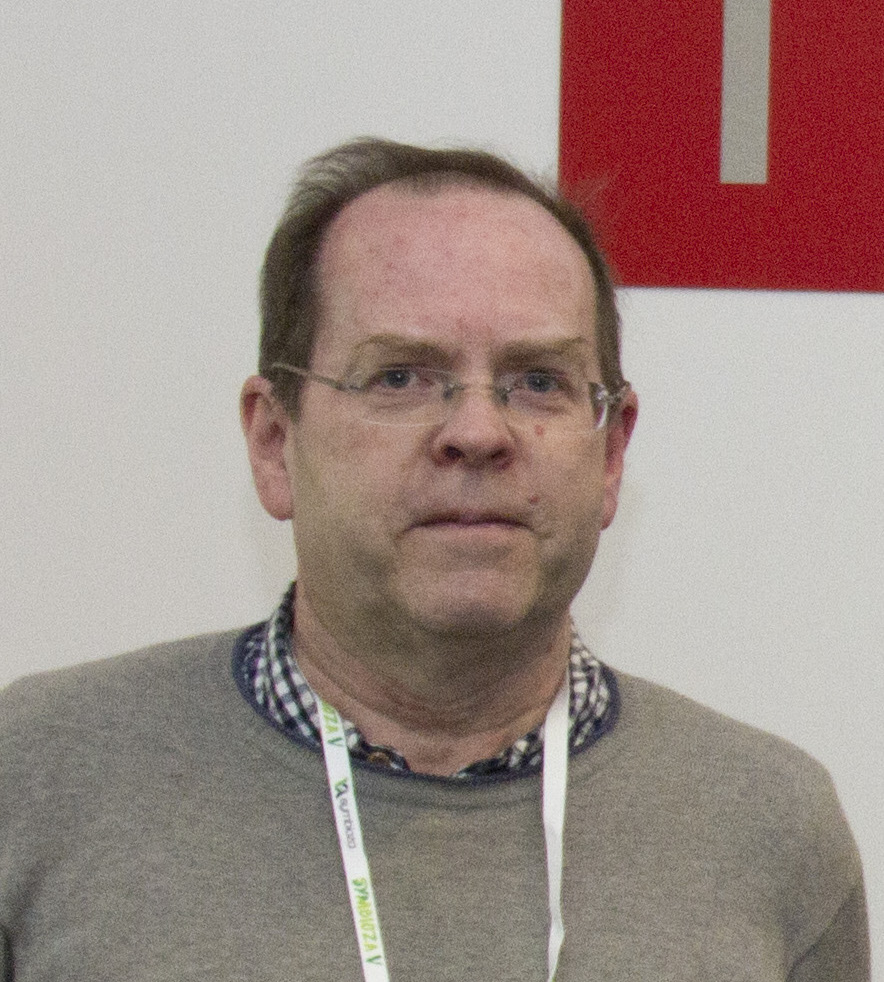 |
Brendan DaviesUniversity of Leeds, England Scientific interests: study of plant development applying molecular genetics and genomics Lecture title: Transcriptional Repression in Plant Development and Evolution |
» show more info
Personal website
Selected publications:
1. Single amino acid change alters the ability to specify male or female organ identity, PNAS 2010, 107, 18898.
2. Hose in Hose, an S locus-linked mutant of Primula vulgaris, is caused by an unstable mutation at the Globosa locus, PNAS 2010, 107, 5664.
» hide bio
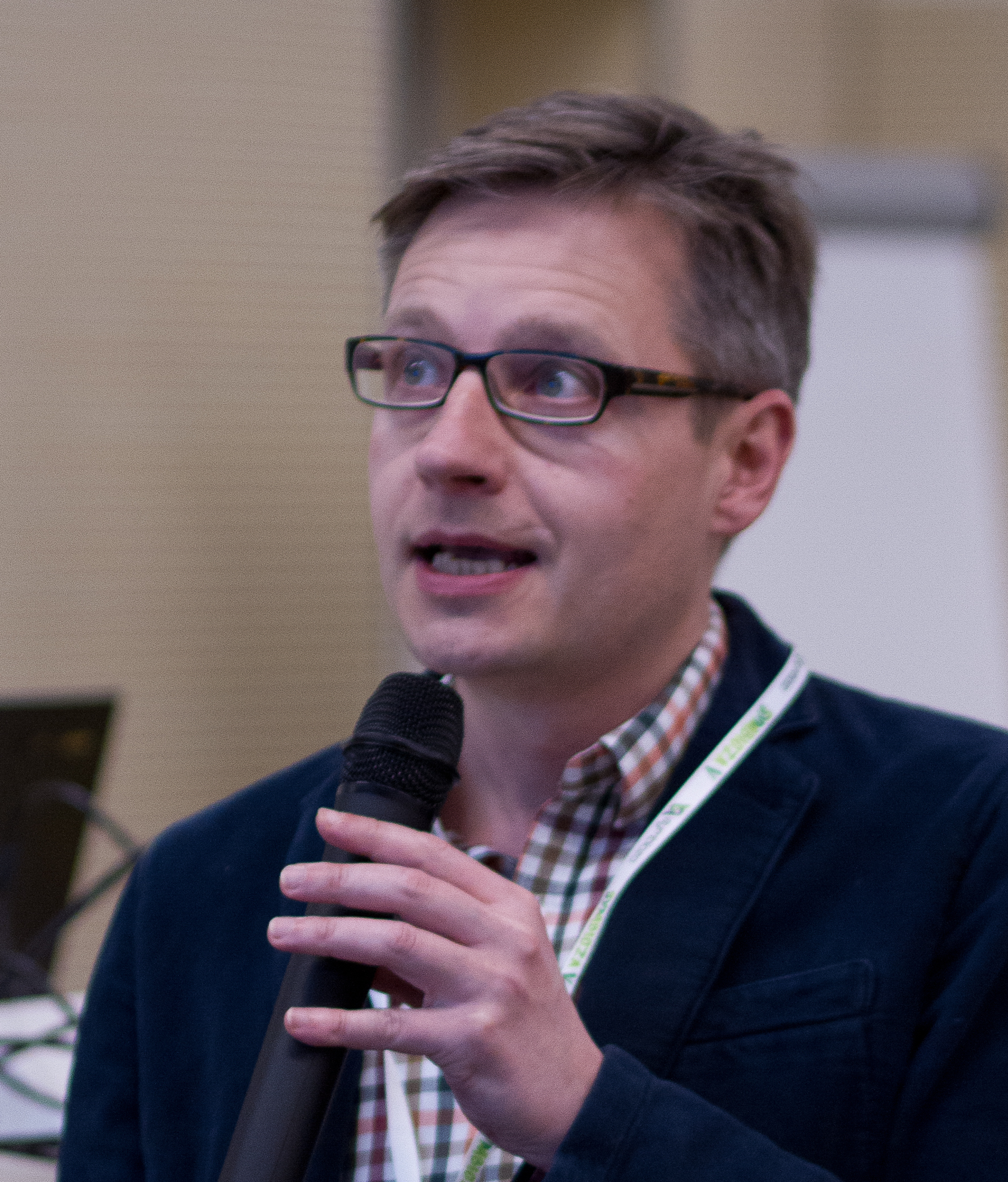 |
Andrzej DziembowskiInstitute of Biochemistry and Biophysics, Scientific interests: functional genomics Lecture title: RNA decay in health and disease |
» show more info
Andrzej Dziembowski is a head of the Laboratory of RNA Biology and Functional Genomics at the Institute of Biochemistry and Biophysics, Polish Academy of Sciences. He spent an important stage of his career in the Centre de Génétique Moléculaire CNRS in Gif-sur-Ivette, Paris, and after return to Poland he received a prestigious EMBO Installation Grant for creation of his own research group. He was awarded numerous scientific awards, such as Jakub Karol Parnas award for the best Polish experimental work in Biochemistry (2013), National Science Center award for outstanding scientific achievements (2013) or Prime Minister award for habilitation thesis (2010). Prof. Dziembowski’s research team in IBB is focused on the investigation of Eucaryotic RNA decay and processing, including analysis of macromolecular assemblies involved in RNA metabolism, and developing of cloning and protein expression tools. His dynamic research has been confirmed by numerous outstanding publications including recent (2015-2016) papers in Nature and Nature Communications.
Selected recent publications:
1. The architecture of the Schizosaccharomyces pombe CCR4-NOT complex, Nat Commun. 2016, 25, 10433.
2. Mistargeted mitochondrial proteins activate a proteostatic response in the cytosol,Nature, 2015, 524, 485.
» hide bio
 |
Toni GabaldónCentre for Genomic Regulation, Scientific interests: comparative genomics, molecular evolution Lecture title: Mitochondria and the origin of the eukaryotic cell |
» show more info
Toni Gabaldón Estevan obtained his PhD at Radboud Institute for Molecular Life Sciences (Nijmegen, NL).Them he was awarded an EMBO Long Term Fellowship at Bioinformatics Department of the Investigation Centre of Prince Filip (Valencia). Since 2008 he is a Group Leader in the Bioinformatics and Genomics Programme at the Centre for Genomic Regulation in Barcelona, he is also a professor at the Universitat Pompeu Fabra (UPF), where he teaches bioinformatics and molecular evolution. In 2012 he obtained the highly competitive starting grant from the European Research Council. Prof. Gabaldón’s team is focused on using comparative genomics and phylogenetics to study the origin, evolution and function of biological systems. This includes investigations of the origin and evolution of biochemical pathways, protein complexes and cellular organelles. The group uses comparative genomics to answer important biological questions, including those related to the evolution of fungal pathogens. He has published over 60 articles in international journals including Nature, Science, and Cell.
Selected publications:
1. Late acquisition of mitochondria by a host with chimaeric prokaryotic ancestry, Nature 2016, DOI:10.1038/nature16941.
2. Synonymous mutations frequently act as driver mutations in human cancers, Cell, 2014, 156, 1324.
» hide bio
 |
Artur JarmołowskiAdam Mickiewicz University, Scientific interests: RNA Biology Lecture title: Post-transcriptional coordination of splicing and miRNA biogenesis in plants |
» show more info
Artur Jarmołowski is a full professor at the Institute of Molecular Biology and Biotechnology of the Faculty of Biology, Adam Mickiewicz University in Poznan. He was elected a presidium member of Polish Biochemical Society, and, since 2010, a member of the prestigious National Science Center Council. His research team investigates RNA structure and functions, RNA metabolism, pre-mRNA splicing, and alternative splicing and its regulation. In 2014 he was granted with award of Polish Academy of Sciences for outstanding scientific achievements describing new aspects of microRNA biogenesis in plants. He was awarded the most important Polish grants for experienced researchers Mistrz by the Foundation of Polish Science and Maestro by the National Science Centre. He is also a co-founder of Poznan RNA Consortium within the Leading National Scientific Centres (KNOW) programme. He published in Nature, and recently regularly in Nucleic Acids Research.
Selected recent publications:
1. FUS/TLS contributes to replication-dependent histone gene expression by interaction with U7 snRNPs and histone-specific transcription factors, Nucleic Acids Res. 2015, 43, 9711.
2. NTR1 is required for transcription elongation checkpoints at alternative exons in Arabidopsis, EMBO J, 2015, 34, 544.
» hide bio
 |
Stanisław KarpińskiWarsaw University of Life Sciences, Poland Scientific interests: plants biotechnological modelling Lecture title: The role of Energy Dissipation and Reactive Oxygen Species in Retrograde Cell Death Signaling in Arabidopsis |
» show more info
Stanisław Karpiński received his PhD and DSc degrees at the Swedish University of Agricultural Sciences in Umeå, and was nominated full professor in molecular physiology of plants by Vice-Chancellor of the Stockholm University (2004). Currently, Prof. Karpiński works at the Warsaw University of Life Sciences, leading the Laboratory of Plant Physiomics and Crop Design. His team is focused on the dependence between quantum processes in photosystems I and II and redox, electrophysiologic and hormonal state of the cell as a response to biotic and abiotic stresses. As a laureate of the Welcome programme by the FOundation for Polish Science he investigates new methods of cell wall hydrolysis for biofuel production.
Selected publications:
1. Large-Scale Phenomics Identifies Primary and Fine-Tuning Roles for CRKs in Responses Related to Oxidative Stress, PLoS Genet, 2015, DOI:10.1371/journal.pgen.1005373.
2. Systemic signaling and acclimation in response to excess excitation energy in Arabidopsis, Science, 1999, 284, 654.
» hide bio
 |
Wanda KukulskiMRC Laboratory of Molecular Biology (LMB), Scientific interests: structure, dynamics, and function of biological membranes Lecture title: Correlative light and electron microscopy as an approach to structural cell biology |
» show more info
Wanda Kukulski graduated from the University of Basel. She stayed at Basel moving to the M. E. Müller Institute, Biozentrum, for her first postdoctoral position. She then moved to EMBL Heidelberg, where she worked with J. Briggs, developing some cutting edge correlative microscopy techniques including fluorescence and 3D electron microscopy with high sensitivity and spatial precision. She was granted as a group leader in the prestigious MRC Laboratory of Molecular Biology (LMB) in Cambridge. Her group is currently focusing on the membrane dynamics that control cargo traffic through the network of endosomes, and the role of membrane architecture at contact sites between two organelles. The aim of the research is to provide a mechanistic understanding of how membrane architecture intersects with cellular processes involving inter-membrane communication and transport.
Selected publications:
1. Plasma membrane reshaping during endocytosis is revealed by time-resolved electron tomography, Cell, 2012, 150, 508
» hide bio
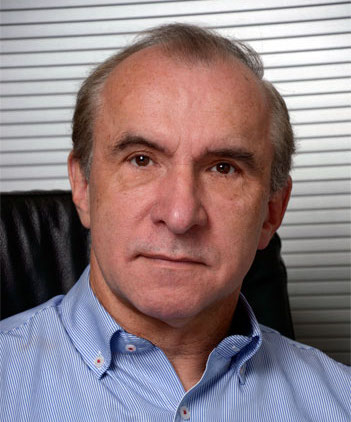 |
Maciej KurpiszInstitute of Human Genetics, Polish Academy of Sciences, Scientific interests: stem cells and their application in clinical practice Lecture title: Stem cells and their application in clinical practice |
» show more info
Maciej Kurpisz is the head of the Department of Reproductive Biology and Stem Cells in Human Genetics Institute of the Polish Academy of Sciences in Poznan, and andrologist in the European Centre of Motherhood InviMed in Poznan. “Man of the Year 2010” by Americal Biographical Society in recognition of outstanding scientific discoveries and achievements and for dedication and excellence. Professor Maciej Kurpisz deals with diagnosis and treatment with a special focus on infertility andrology, genetics, medicine and anti-aging Immunology (regenerative medicine using stem cells). The pioneering nature of scientific approaches – research in the field of human reproductive biology, global nature of the work of his team, outstanding publishing and organizational achievements closely linked with the latest trends and broad international cooperation, make prof. Kurpisz an outstanding scientist, teacher and doctor.
Selected recent publications:
1. X-Linked TEX11 Mutations, Meiotic Arrest, and Azoospermia in Infertile Men, New Engl. J. Med. 2015, 371, 2097.
» hide bio
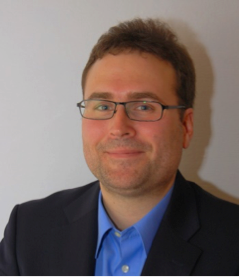 |
Julian ThieleLeibniz Institute of Polymer Research, Scientific interests: metabolic engineering of biological functions in hydrogels Lecture title: Droplet microfluidics – from material design to microbioreactors |
» show more info
Julian Thiele is a group leader at Leibniz Institute of Polymer Research Dresden (Germany). He received his BSc from Lund University and his diploma from Hamburg University, both degrees in chemistry in 2008. During his PhD, he worked with David A. Weitz at Harvard University, and graduated from Bayreuth University in 2011. Funded by the Humboldt Foundation, he worked as a postdoc with Wilhelm T. S. Huck at Radboud University Nijmegen on surfactant design for droplet microfluidics, cell differentiation in artificial 3D matrices, and copolymer vesicles from microdroplet templates.
After a short stay at Dresden University of Technology (2014-2015), he is leading one of the five young investigator groups in the newly founded Leibniz Research Cluster since October 2015 (http://www.leibniz-research-cluster.de/). As part of the strategy “Biotechnology 2020+” of the Federal Ministry of Education and Research, the LRC aims at developing novel multifunctional, cell-free platforms for biotechnological processes combining natural sciences and engineering with clear applications in drug development beyond the stage of model systems.
Beyond the activities in the LRC, Julian Thiele’s research interests include microfluidic flow cells with integrated functional components, biochemical reactions in polymer hydrogels, and metabolic engineering.
Selected publications:
1. Designer hydrogels for cell cultures: a materials selection guide, Adv. Mater. 2014, 26, 125-147.
» hide bio
Young invited lectures
As one of the main goal of Symbioza is promoting young dynamic scientists, as in the 2016 edition, we established a new lecture category. Young invited lectures were be given by scientists of already remarkable scientific achievements despite their young age and not having their own research group. By doing so, we wish to support researchers on the threshold of their fully-independent careers.
 |
Devrim KilincUniversity College Dublin, Ireland Scientific interests: application of microtechnology in cell mechanobiology Lecture title: Combining Mechanical and Chemical Stimuli to Induce Cell Growth and Death |
» show more info
Strona osobista
Selected publications:
1. Bio-Nano-Magnetic Materials for Localized Mechanochemical Stimulation of Cell Growth and Death, Adv Mater. 2016, DOI:10.1002/adma.201504845.
» hide bio
 |
Michał PasternakUniversity of Cambridge, England Scientific interests: cell cycle arrest during oocyte maturation Lecture title: Live imaging RNAi screen for genes essential for meiosis in mammalian oocytes |
» show more info
Research group website
Selected publications:
1. Live imaging RNAi screen reveals genes essential for meiosis in mammalian oocytes, Nature, 2015, 524, 239.
» hide bio
Associated events
Bioinformatics workshop
* Marcin Kosiński (Warsaw University of Technology)
Fundamentals of R package in biotechnology
Industry lecture
* Piotr Zień (Polpharma Biologics)
Challenges in biosimilar drug development
Career meeting
* Edyta Dawidczyk (Polpharma SA)
Biotechnologia – studia i co dalej? (In Polish)
Oral student presentations
32 students talks were given in 8 sessions on the following topics: cancer biotechnology, nucleic acid biotechnology, medical biotechnology, protein biotechnology, plant biotechnology, biochemistry, microbiology, nanobiotechnology. Talks were given in English or Polish, but parallel sessions were organised in the way that English-speaking participants had a possibility to attend English talks at all times.
» See full presentation list
Session 1A: Biotechnologia nowotworów (in Polish)
O-1 Damian Matyśniak (Silesian University, Katowice)
Zmiana ultrastruktury komórkowej oraz poziomu wolnych rodników w komórkach płaskonabłonkowego raka płuca linii NCI-H520 z obniżonym poziomem białka HSPA2
O-2 Katarzyna Kamińska (Nicolaus Copernicus University, Torun)
Mechanizmy regulujące ekspresję genów CCNA1 oraz TIMP2 wpływające na nadekspresję metaloproteinaz macierzy w liniach komórkowych raka stercza
O-3 Anna Konturek (Jagiellonian University, Krakow)
Współczesne metody diagnostyczne ostrych białaczek szpikowych
O-4 Katarzyna Falana (Warsaw Medical University)
Ocena częstości oraz prognostycznego i predykcyjnego znaczenia wybranych czynników molekularnych dla medulloblastoma w polskiej populacji pediatrycznej
Session 1B: Nucleic Acid Biotechnology
O-5 Piotr Zgłobicki (Jagiellonian University, Krakow)
UVR3: a highly efficient photolyase that repairs all cellular DNA?
O-6 Aleksandra Kwaśnik (University of Warsaw)
Primary report on the plant 5’ mRNA cap surveillance
O-7 Marta Jarczewska (Warsaw University of Technology)
Studies on the use of aptamers as recognition layers in electrochemical biosensors
O-8 Dawid Kościelniak (University of Gdansk)
Transcriptional slippage dynamic and A/T-rich sequence boundaries
Session 2A: Biotechnologia medyczna (in Polish)
O-9 Ewelina Tomecka (Warsaw University of Technology)
Hodowla komórek mięśnia sercowego w mikrosystemie przepływowym
O-10 Joanna Brokowska (University of Gdansk)
Izotiocyjaniany aktywują autofagię w prawidłowych ludzkich fibroblastach poprzez modulację szlaku sygnałowego AMPK-mTORC1-S6K1
O-11 Barbara Ostrowska (Warsaw University of Technology)
Perspektywy zastosowania druku 3D w medycynie – biowchłanialne implanty do leczenia ubytków tkanki kostnej
O-12 Katarzyna Skierka (Warsaw University of Technology)
Identyfikacja fosforylacji ludzkiej syntazy tymidylanowej
Session 2B: Protein biotechnology
O-13 Jakub Dominowski (International Institute of Molecular and Cell Biology, Warsaw)
Investigation of mitochondrial activity in mammalian cell lines
O-14 Aleksandra Kopacz (Jagiellonian University, Krakow)
The role of Nrf2 in premature senescence of Human Aortic Endothelial Cells: is there a link to mTOR kinase?
O-15 Urszula Budniak (University of Warsaw)
Characterization of electrostatic interactions in active sites of caspases
O-16 Urszula Talar (Institute of Plant Genetics, Polish Academy of Sciences, Poznan)
The identification and characterization of potato B-Box Zinc Finger Gene Family
Session 3A: Biotechnologia roślin (in Polish)
O-17 Maria Zielińska (University of Opole)
Translokacja cynku na przykładzie mięty (Mentha L.) oraz melisy (Melissa officinalis)
O-18 Anna Smolarska (University of Gdansk / Gdansk Medical University)
Wrogowie naszych wrogów, czyli o bakteriofagach litycznych infekujących bakterie z gatunku Pectobacterium wasabiae
O-19 Krzysztof Michalski (Nicolaus Copernicus University, Torun)
Identyfikacja i charakterystyka sekwencji kodujących homologów SPL u Lupinus luteus
O-20 Malwina Botor (Silesian University, Katowice)
Wpływ trichostatyny A na indukcję somatycznej embriogenezy w kulturze in vitro niedojrzałych zarodków zygotycznych Arabidopsis
Session 3B: Medical biotechnology
O-21 Renata Pałka (Jagiellonian University, Krakow)
Model human prostate cancer cell line with stable expression of fusion protein LifeAct-TagGFP2
O-22 Anna Jurek (Innovative Medical Forum of Oncology Centre, Bydgoszcz)
From ENCODE genome wide acetylation data to chromatin immunoprecipitation in prostate cancer cell lines
O-23 Marcin Luty (Jagiellonian University, Krakow)
Curcumin as a potential tool in combined mitoxantrone-based chemotherapy of carcinosarcoma
O-24 Karolina Pierzynowska (University of Gdansk)
Reduction of mutated huntingtin protein in genistein-treated human cells as a novel approach for the treatment of Huntington’s disease
Session 4A: Mikrobiologia (in Polish)
O-25 Mariusz Madej (Jagiellonian University, Krakow)
Unikatowy dwuskładnikowy system regulacyjny bakterii Porphyromonas gingivalis
O-26 Bartłomiej Zieniuk (Warsaw University of Life Sciences)
Ocena możliwości zastosowania odpadów z rybnych zakładów produkcyjnych w syntezie oleju mikrobiologicznego przez drożdże Yarrowia lipolytica
O-27 Anna Maria Mleczko (Institute of Bioorganic Chemistry, Polish Academy of Sciences, Poznan)
snoRNA – niezwykła cząsteczka z milionem tajemnic – czyli małe, niekodujące RNA powstające ze snoRNA
O-28 Maciej Dąbrowski (Institute of Human Genetics, Polish Academy of Sciences, Poznan)
Translacyjny odczyt przedwczesnych kodonów STOP (PTC readthrough) w mutacjach związanych z patogenezą pierwotnej dyskinezy rzęsek
Session 4B: Nanobiotechnology
O-29 Marta Krychowiak (University of Gdansk / Gdansk Medical University)
Antimicrobial potential of in vitro cultured carnivorous plants combined with silver nanoparticles
O-30 Małgorzata Wolska-Pietkiewicz (Warsaw University of Technology)
‘Safe-by-design’ strategy of non-toxic ZnO Nanocrystals
O-31 Wojciech Rządkowski (University of Warsaw)
How quantum mechanics limits our knowledge about biological systems?
O-32 Barbara Strojny (Warsaw University of Life Sciences)
Long term influence of carbon nanoparticles on rats health
» Hide presentation list
Posters
During 2 poster session, ca. 80 posters were presented by students. All the posters were prepared in English and were devoted to experimental scientific work.
» Show full list of posters
Poster session 1 (Saturday)
P-01 Anna Pluta ( Jagiellonian University, Krakow )
Effect of newly synthethized hyaluronic acid derivatives on human skin fibroblasts
P-02 Anna Kobuszewska ( Warsaw University of Technology )
Analysis of cardiac cell proliferation in microsystems Lab-on-a-Chip
P-03 Magdalena Bułka ( Warsaw University of Technology )
Evaluation of nanoencapsulated verteporfin’s cytotoxicity using a microfluidic system
P-04 Nicoletta Makowska ( Adam Mickiewicz University, Poznan )
Prevalence of CTX‐M‐type extended‐spectrum β‐lactamases in Enterobaceriaceae strains isolated from municipal sewage
P-05 Jaime Ivan Castillo Silva ( University of Warsaw )
SYNERGISTIC ANTIMICROBIAL EFFECTS BETWEEN mRNA TARGETED PNA AND ANTIBIOTICS ON GRAM-NEGATIVE BACTERIA
P-06 Kamila Kulbat ( Lodz University of Technology )
Accumulation of Cu, Zn and Ni in selected consumer plants from Brassicaceae and Lamiaceae families
P-07 Marlena Stawska ( Warsaw University of Life Sciences )
Multicatalytic proteinase complex – proteasome is an important regulator of light-dependent germination of Arabidopsis seeds
P-08 Joanna Rusecka ( University of Warsaw )
MLPA analysis of the nuclear genes involved in the maintenance of mitochondrial DNA in a group of patients with mitochondrial diseases
P-09 Marta Matuszewska ( University of Gdansk / Gdansk Medical University )
Culturing conditions influence on antimicrobial metabolite production by Pseudomonas donghuensis P482, a potential biocontrol strain
P-10 Angelika Michalak ( University of Gdansk / Gdansk Medical University )
In vitro micropropagation of Iris pseudacorus and antimicrobial activity of secondary metabolites from underground parts of Iris species.
P-11 Kamil Szala ( Warsaw Medical University )
Enhancement of paclitaxel biosynthesis in Taxus x media transgenic root cultures
P-12 Aleksandra Lisek ( Warsaw University of Life Sciences )
Influence of nanoparticles of platinum on chicken embryo development
P-13 Agnieszka Żuchowska ( Warsaw University of Technology )
Evaluation of photocytotoxic effect of 5‐Aminolevulinic Acid (ALA) on 3D spheroid culture in a microfluidic system
P-14 Alicja Starosta ( Adam Mickiewicz University, Poznan )
Analysis of BRI1 localization using WAVE markers, depending on presence of presenilins from gamma-secretase complex in plant cells
P-15 Iwona Michałowska ( Poznan University of Technology )
The rhamnolipids influence on initial plants growth
P-16 Jakub Powała ( Warsaw Medical University )
The use of in vitro micropropagated Rindera graeca for the preparation of gold nanoparticles via the green synthesis process
P-17 Daniel Paprocki ( Institute of Organic Chemistry, Polish Academy of Sciences, Warsaw )
Efficent Passerini reactions in an aqueous vesicle system.
P-18 Małgorzata Cabaj ( University of Warsaw )
Survey and geometric classification of nucleobases dimers in crystalline state
P-19 Ewelina Sobierajska ( University of Lodz )
PAMAM dendrimers as a carriers of a double weapon- the complex of paclitaxel and trastuzumab
P-20 Piotr Tokarz ( Jagiellonian University, Krakow )
Characterising of SigH-RshA complex from Mycobacterium tuberculosis
P-21 Magdalena Hryhorowicz ( Poznan University of Life Sciences )
Production of genetically engineered fibroblasts cell lines with the use of nanomagnetic gene delivery system for the purpose of xenotransplantation
P-22 Karolina Daniluk ( Warsaw University of Life Sciences )
In vitro effect of hierarchical nanoporous carbons (HNCs) on Glioblastoma multiforme U87 cell line
P-23 Katarzyna Możdżeń ( Pedagogical University, Krakow )
The impact of water extracts of marsh cudweed (Gnaphalium uliginosum L.) on early grow of selected vegetable seeds from horticultural crops
P-24 Magdalena Matusiewicz ( Warsaw University of Life Sciences )
Transgenic flax overexpressing polyphenols: anti-inflammatory mechanisms
P-25 Agnieszka Kowalczyk ( Warsaw Medical University )
Stevia rebaudiana (Bertoni) in vitro cultures for the production of steviol glycosides
P-26 Aleksandra Lewandowska ( University of Gdansk / Gdansk Medical University )
Quantitative measurement of most abundant proteins in human follicular fluid (hFF) by SWATH-MS analysis
P-27 Natalia Pieńkowska ( Rzeszow University of Technology )
Cytotoxicity and cellular uptake of PAMAM G3 dendrimer conjugated with D-glucoheptono-1,4-lactone
P-28 Piotr Bartosz ( Warsaw University of Life Sciences )
A.thaliana ALKBH6 dioxygenase may play an important role in ABA mediated stress response.
P-29 Józefina Bogusz ( Jagiellonian University, Krakow )
Structural analysis of Pim-1 kinase complexes with ATP-competitive inhibitors
P-30 Mateusz Walkowiak ( Institute of Bioorganic Chemistry, Polish Academy of Sciences, Poznan )
A comparison of methods for detection of small RNAs derived from snoRNAs in Saccharomyces cerevisiae
P-31 Rafał Matusiak ( Lublin Medical University )
Optimization of 3D culture of human cells on an alginate matrix
P-32 Eliza Dec ( Nicolaus Copernicus University, Torun )
Paramecium caudatum as a model organism in thermoregulation mechanisms research
P-33 Michał Jerzy Woźniak ( Warsaw University of Technology )
3D printed biodegradable scaffolds for regeneration of bone defect after cancer treatment in dogs.
P-45 Adrian Chlanda ( Warsaw University of Technology )
Atomic force microscopy mechanical properties determination of 3D printed tissue engineering scaffolds
P-35 Marcel Thiel ( University of Gdansk / Gdansk Medical University )
Peptides based on P-loop reveal ATP binding properties
P-36 Monika Stępień ( University of Warsaw )
The impact of mRNA decay factors on the response to biotic stress in Arabidopsis thaliana.
P-37 Joanna Hertel ( University of Lodz )
Resorcylidene derivative of AminoGuanidine (RAG) does not protects the human lymphocyte mitochondrial bioenergetics against carbonyl stress in the in vitro model of experimental hyperglycemia
P-38 Agata Metera ( Warsaw University of Technology )
Multiple emulsions for cryopreservation and banking of living cells
P-39 Grzegorz Gawron ( University of Gdansk / Gdansk Medical University )
Investigation of black cumin (Nigella sativa) oil compositon and its antibacterial properties. Formulation of products based on black cumin oil
Poster session 2 (Sunday)
P-41 Maciej Grochowski ( University of Warsaw )
Study of localization of particular PPR proteins in Candida albicans cells using a GFP marker.
P-42 Izabela Broniarek ( Adam Mickiewicz University, Poznan )
Effect of elevated level of free fatty acids on endothelial mitochondria
P-43 Klaudyna Fidyt ( Institute of Immunology and Experimental Therapy, Polish Academy of Sciences, Wroclaw )
The role of Akt/mTOR pathway during short- and long-term decitabine treatment in human colorectal cancer cells
P-44 Natalia Sowa ( University of Gdansk )
Influence of blood samples storage on measurement of mitochondrial DNA level by real-time quantitative PCR
P-45 Magda Koprowska ( Warsaw Medical University )
Efficient multiplication system of Polyscias filicifolia Bailey for chlorogenic acid production
P-46 Łucja Rodzik ( Jagiellonian University, Krakow )
Novel complex biosensor Quantum Dots – guanine and Gold Nanoparticles – cytosine based on Fluorescence Resonance Energy Transfer (FRET)
P-47 Marta Szabat ( Institute of Bioorganic Chemistry, Polish Academy of Sciences, Poznan )
The antiparallel and parallel duplexes – thermodynamic and structural studies
P-48 Tomasz Czapik ( Institute of Bioorganic Chemistry, Polish Academy of Sciences, Poznan )
New approach in synthesis of 2\\\’-fluoro-2\\\’-deoxyarabinoguanosine as conformationally defined nucleoside for RNA structure and function study.
P-49 Piotr Karczyński ( University of Szczecin )
Isolation and molecular identification of rhizobacteria from organic farms of Western Pomerania (Poland)
P-50 Anna Orłowska ( University of Szczecin )
The activity of Polycomb genes during induction phase of somatic embryogenesis in Medicago truncatula cv. Jemalong
P-51 Agnieszka Dziarmaga ( West-pomeranian University of Technology, Szczecin )
Analiza spektrum aktywności przeciwgronkowcowej komercyjnego preparatu bakteriofagowego
P-52 Monika Romanik ( University of Gdansk / Gdansk Medical University )
Cyanidin as a potential scavenger of food-derived mutagens
P-53 Agnieszka Borowik ( University of Gdansk / Gdansk Medical University )
Fullerene C60 as a carrier for biologically active compounds
P-54 Ewelina Łojewska ( University of Lodz )
Genetic cassettes encoding colicin M in Nicotiana tabacum cell culture: design and application
P-55 Magdalena Firlej ( Jagiellonian University, Krakow )
Contruction and activity analysis of viral RNA detectors
P-56 Anna Sobiepanek ( Wroclaw University of Technology )
The influence of selected organic solvents on the mechanical properties of epithelial skin cells
P-57 Joanna Szewczyk ( Maria Sklodowska-Curie University, Lublin )
TBA
P-58 Maja Haczyk ( Warsaw University of Technology )
Cytotoxicity studies of auranofin on normal and tumor skin cells
P-59 Marta Hałas-Wiśniewska ( Nicolaus Copernicus University, Torun / Collegium Medicum, Bydgoszcz )
TBA
P-60 Natalia Kurantowicz ( Warsaw University of Life Sciences )
Interaction of graphene family materials with Listeria monocytogenes and Salmonella enterica
P-61 Katarzyna Stelmach ( Agricultural University, Krakow )
Insertion polymorphism of Stowaway transposons as a source of intron length polymorphism markers in carrot
P-62 Marcin Jajko ( Silesian Medical University, Katowice )
Profil ekspresji genów naprawy DNA w raku endometrium
P-63 Yanina Dashkevich ( University of Gdansk / Gdansk Medical University )
The influence of secondary metabolites contained in the Acorus calamus var. americanus tissues on selected human pathogens.
P-64 Natalia Wasiak ( Nicolaus Copernicus University, Torun )
Plant metallothioneins – proteins involved in plant disease resistance?
P-65 Maria Gdaniec ( University of Gdansk )
Searching for new chemosensors among acridine derivatives
P-66 Przemysław Olejnik ( Poznan University of Life Sciences )
TBA
P-67 Brygida Baran ( Silesian University, Katowice )
Functional analysis of genes potentially associated with the DNA repair in barley Hordeum vulgare L.
P-68 Oliver Tkaczyk ( Silesian University, Katowice )
The development of a reliable screening system for the screening of aluminium toxicity in barley (Hordeum vulgare L.) cultivars
P-69 Juliusz Pijacki ( Poznan University of Life Sciences )
TBA
P-70 Karolina Krajza ( University of Warmia and Mazury, Olsztyn )
Effect of steroids and selected luteotropic and luteolytic factors on membrane progesterone (P4) receptors gene expression in bovine myometrial cells.
P-71 Pola Łomża ( University of Warsaw )
Assay of the effectiveness of bioremediation of soil contaminated petroleum hydrocarbons
P-72 Katarzyna Rodzik ( Centre of Postgraduate Medical Education, Warsaw )
MicroRNAs dependent regulation of proliferation properties in renal cancer cells
P-73 Magdalena Senderowicz ( Silesian University, Katowice )
Analysis of gene expression patterns associated with drought stress in barley
P-74 Monika Kupiec ( Warsaw University of Technology )
CHARACTERISATION OF HYDROLYSIS AND INTERACTIONS OF GOLD-COMPLEXES WITH SERUM COMPONENTS BY SEC – ICP MS
P-75 Maciej Michalak ( Jagiellonian University, Krakow )
TRAP protein cage as a novel, potential drug-delivery system
P-76 Aleksandra Gosk ( Warsaw University of Life Sciences )
SOX9 – potential marker of male maturation in Siberian sturgeon (Acipenser baerii)
P-77 Melisa Franco Gutierrez ( Warsaw University of Life Sciences )
Genetic diversity and characterization of heavy metal-resistant-endophytic bacteria from roots of white mustard (Sinapis alba) grown in the presence of zinc
P-78 Małgorzata Marć ( Jagiellonian University, Krakow )
Biological activity evaluation in a group of new 8-methoxy-purine-2,6-diones
P-79 Magdalena Zielińska ( International Institute of Molecular and Cell Biology, Warsaw )
Mutual regulation of RNA cap methyltransferase CMTr1 and helicase DHX15
» Hide poster list
Social events
Urban game
* Friday night at pole Mokotowskie
Conference get-together
* Saturday night at Medyk Club
Organizing committee
Katarzyna Kędzierska – head
Piotr Krupiński – vice head and scientific issues
Urszula Budniak – finance
Ewa Ramotowska – PR
Aleksandra Kutkowska – logistics
| Alicja Armatowska | Joanna Baran | Mirosław Barłowski | Julita Chlebowicz |
| Sonia Dębek | Jakub Dominowski | Paweł Fotyga | Michał Gąsior |
| Sylwia Gregorczuk | Aleksandra Grochowska | Katarzyna Hyra | Iga Jancewicz |
| Sławomir Jaworski | Klaudia Jurczak | Rafał Kopiasz | Aleksandra Kruk |
| Dorota Kruszyńska | Mikołaj Kuska | Dagna Manczarska | Julia Mastalerz |
| Tomasz Mróz | Agnieszka Ochal | Adam Opalski | Norbert Osiński |
| Agnieszka Paziewska | Rafał Podgórski | Izabela Serafińska | Anna Sobiepanek |
| Aleksandra Sparavier | Małgorzata Stachowiak | Grzegorz Suwała | Zuzanna Suwała |
| Kamil Trzebuniak | Małgorzata Wydrych |
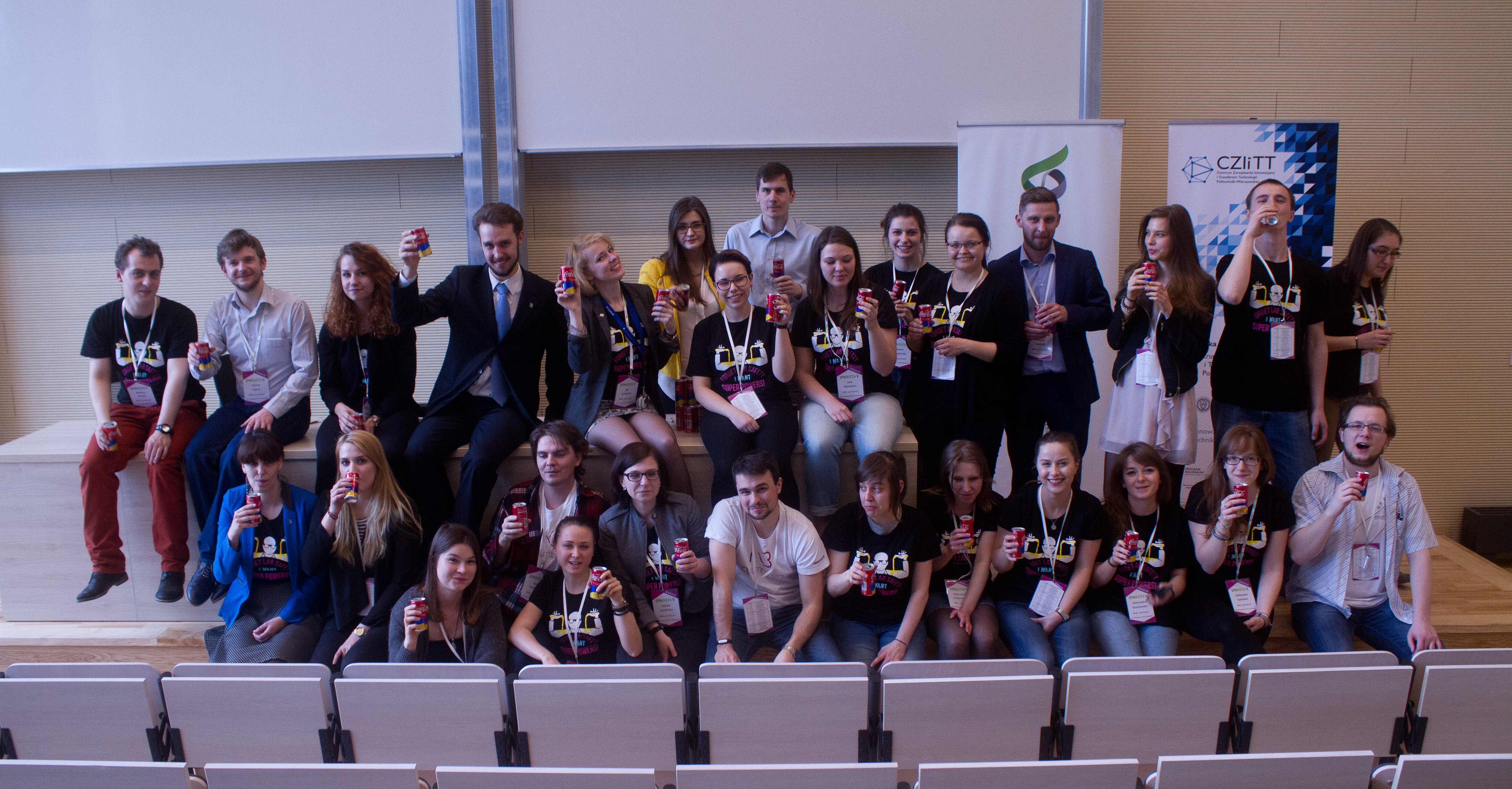
The organisers’ toast to Symbioza 2016!
Supporting institutions
Honorary Patronage
His Magnificence Rector of Warsaw University of Technology
Professor Jan Szmidt
His Magnificence Rector of Warsaw University of Life Sciences
Professor Alojzy Szymański
His Magnificence Rector of the University of Warsaw
Professor Marcin Pałys
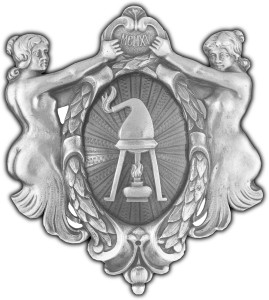
Dean of the Faculty of Chemistry, Warsaw University of Technology
Professor Zbigniew Brzózka
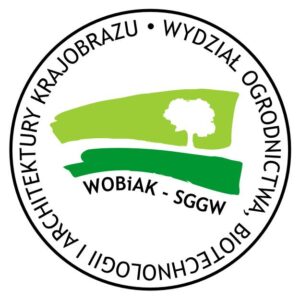
Dean of the Faculty of Horticulture, Biotechnology and Landscape Architecture,
Warsaw University of Life Sciences
Professor Katarzyna Niemirowicz-Szczytt
Dean of the Faculty of Biology, University of Warsaw
Professor Agnieszka Mostowska
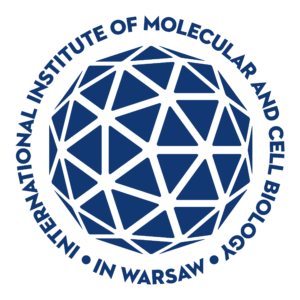 Director of the International Institute of Molecular and Cell Biology
Director of the International Institute of Molecular and Cell Biology
Professor Jacek Kuźnicki
President of The Academy of Young Scientists of the Polish Academy of Sciences
Professor Jakub Fichna
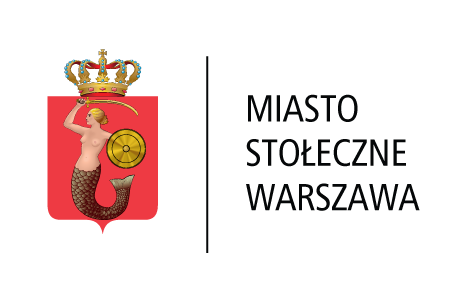
The Mayor of Warsaw
Professor Hanna Gronkiewicz-Waltz
Sponsors
Media partners

